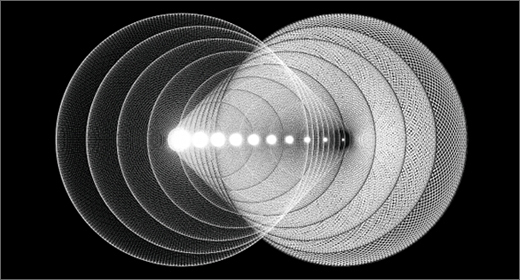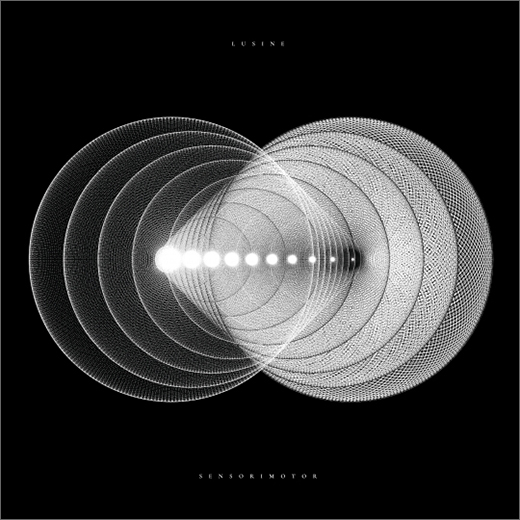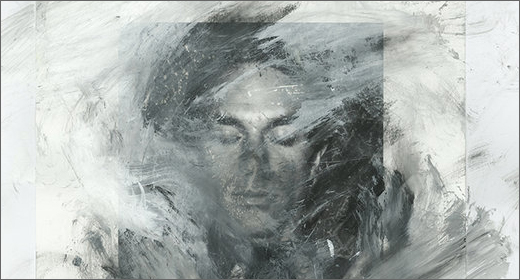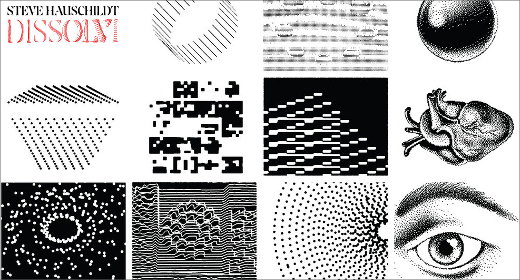The whimsical mix of avant-garde pop and playful electronic listening music should not be confused with it being frivolous or lightweight, however, as McIlwain’s ingenious, hyper-modern sound design and arrangements are still present in spades.
It’s been four years since Jeff McIlwain’s last album The Waiting Room, but the long overdue appointment has finally been met with his latest for Ghostly International. Like its predecessors, Sensorimotor contains his typically quirky mix of spliced and treated vocal tracks, instrumental interludes and interconnecting pieces, but where The Waiting Room took Lusine in a warm, club-friendly direction, this feels a little more varied and experimental.
The whimsical mix of avant-garde pop and playful electronic listening music should not be confused with it being frivolous or lightweight, however, as McIlwain’s ingenious, hyper-modern sound design and arrangements are still present in spades. There’s a keen focus on juxtaposition, for example, heard in the child-like music-box tinkle of “Canopy” that is then subsumed in dub-step aggressive, hyper-filtered synths.
Unfortunately this mix doesn’t always work as well as it should this time around, and it’s often down to an element that’s usually sensitively treated by McIlwain – the vocals. Like the ill-advised cover version of Electronic’s “Get The Message” on The Waiting Room, the heavy filtering of Jeff and Sarah McIlwain’s on “Ticking Hands” don’t do enough to counteract the negative impact their rather trad vocal delivery has on the meticulously produced underlying musical elements.
Nor are the melodies quite as strong on Sensorimotor either, as heard on the rather hollow “Just A Cloud” featuring long-time collaborator Vilja Larjosto on vocals, but when both they and the vocal treatments do work, they absolutely soar. Take an album highlight like “Witness” as an example. Benoit Pioulard at first croons over the pulsing synths and crackles and then gets fed to the arpeggio gods as his voice is chopped to pieces in a dizzying flurry of indecipherable intonations and jingling bells.
Contrary to previous efforts it’s largely the instrumental pieces on Sensorimotor that stand out. “The Level” bubbles, clatters bounces along with an elasticated, Plaid-like spring in its step, but the album finally hits its stride in the final three tracks. The motorik, toe-tapping beats in the slow-burning builder “Flyway” are insistent and propulsive, its success aptly coined by McIlwain’s reference to the hypnotic patterns through which birds are able to so fluidly move in flocks.
The sudden and visceral intrusion of the grimy, monochrome Radiophonic Workshop growl of “Tropopause”‘s maximal ambience is the one track that feels like it could have inspired that otherwise inexplicably out of place sleeve artwork, and Sensorimotor then culminates in the movie chase-scene grandiosity of “The Lift.”
Sensorimotor is available on Ghostly International.


















![Squaric :: 808 [Remixes] (Diffuse Reality) — [concise]](https://igloomag.com/wp/wp-content/uploads/2025/04/squaric-808-remixes_feat-75x75.jpg)







